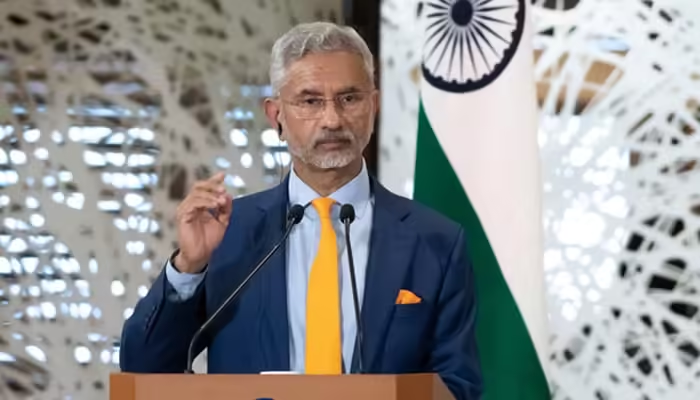In a significant development for South Asian diplomacy, India’s External Affairs Minister S. Jaishankar is set to visit Pakistan to attend the upcoming Shanghai Cooperation Organization (SCO) summit. The high-profile meeting, scheduled to take place in Islamabad on October 15 and 16, marks an important occasion for both countries to come together on a common platform, despite their historically strained relations.
The confirmation of Jaishankar’s visit has generated a buzz in diplomatic circles, as it presents an opportunity for India and Pakistan to engage in a regional dialogue alongside other member nations of the SCO. Both the Indian Foreign Office and official sources in Pakistan have verified the news, emphasizing the importance of the summit for regional cooperation.
A Rare Diplomatic Visit
Jaishankar’s participation in the SCO meeting in Pakistan is noteworthy, as direct interactions between the two neighboring countries have been limited in recent years. The India-Pakistan relationship has been marred by tensions over various political, security, and territorial issues, including the Kashmir dispute and cross-border terrorism. Diplomatic channels between the two nations have often been fraught with tension, and face-to-face interactions between high-ranking officials have become a rare occurrence.
However, the SCO summit provides a multilateral platform where the focus is expected to be on broader regional issues such as security, trade, and economic cooperation. This allows India and Pakistan to engage in discussions that are less likely to center on their bilateral differences, but rather on collective interests shared by other member nations.
What is the Shanghai Cooperation Organization (SCO)?
The Shanghai Cooperation Organization is a Eurasian political, economic, and security alliance that was established in 2001. It consists of eight member states, including China, Russia, India, Pakistan, Kazakhstan, Kyrgyzstan, Tajikistan, and Uzbekistan. The organization’s main goals include promoting cooperation in security matters, combating terrorism, and fostering economic and cultural ties among its member nations.
Given the prominence of China and Russia as key players within the SCO, the organization has gained significant influence in shaping regional dynamics. The inclusion of India and Pakistan in the SCO in 2017 was a landmark decision, bringing together two nuclear-armed neighbors with a long history of rivalry, under a common cooperative umbrella.
The upcoming summit in Islamabad is expected to address several pressing regional and global issues, including the situation in Afghanistan, combating terrorism, regional connectivity, and trade. The participation of foreign ministers from member states, including India’s Jaishankar, underscores the importance of this summit in shaping the future of regional cooperation.
The Significance of Jaishankar’s Visit
Jaishankar’s visit to Pakistan is more than just a symbolic gesture. It signifies India’s commitment to engaging with its regional partners on platforms like the SCO, even when bilateral relations are strained. It also reflects India’s strategic interest in maintaining a presence in key regional organizations that influence security, trade, and diplomacy.
For Pakistan, hosting such an important summit offers an opportunity to showcase its role as a key player in regional diplomacy. It also highlights Pakistan’s commitment to international cooperation, especially in the realm of security and counterterrorism, both of which are major focus areas of the SCO.
Moreover, Jaishankar’s visit to Pakistan could potentially open avenues for side-line discussions, even if informal, between Indian and Pakistani officials. While there is no confirmation of any direct bilateral meeting between Jaishankar and his Pakistani counterpart, the presence of both diplomats at the same forum may provide an opportunity for some level of engagement, if not a full-fledged dialogue.
Challenges and Prospects for India-Pakistan Relations
Despite the SCO’s multilateral nature, it is difficult to overlook the longstanding hostilities between India and Pakistan. The two nations have fought several wars and skirmishes since their independence in 1947, and their relationship has remained tense over key issues like Kashmir, terrorism, and cross-border violence.
Recent years have seen a further deterioration in ties, with little to no diplomatic contact at the highest levels. India has repeatedly expressed concerns over terrorism emanating from Pakistan, while Pakistan has raised issues about India’s policies in Kashmir. Given these challenges, the SCO summit is unlikely to result in any significant breakthrough in India-Pakistan relations.
However, the summit does present an opportunity for both countries to focus on shared regional concerns. The changing geopolitical landscape, particularly in Afghanistan after the Taliban’s return to power, poses challenges that both India and Pakistan must address in cooperation with other SCO members. Tackling terrorism, fostering economic stability, and enhancing regional connectivity are all areas where both nations have common interests, even if their bilateral differences persist.
Looking Ahead
As India and Pakistan prepare to attend the SCO summit in Islamabad, there is hope that this multilateral forum can help ease tensions and promote dialogue, even if indirectly. Jaishankar’s visit to Pakistan, despite being tied to the SCO’s agenda, is a positive step in ensuring that diplomatic engagements continue at the regional level.
While the prospects for a dramatic improvement in India-Pakistan relations remain slim, the summit underscores the importance of dialogue and cooperation in a world where regional security and economic stability are increasingly interconnected. Both nations, alongside other SCO members, will need to navigate these challenges with a spirit of cooperation and pragmatism.
S. Jaishankar’s participation in the SCO summit in Pakistan is a significant moment for regional diplomacy. As the foreign ministers of both nations come together under the SCO umbrella, the focus will likely be on collective regional issues rather than the bilateral tensions that have long defined India-Pakistan relations. Though immediate breakthroughs in their relationship are unlikely, the summit serves as a platform for continued engagement and cooperation on broader regional matters, keeping the door open for future dialogue.



